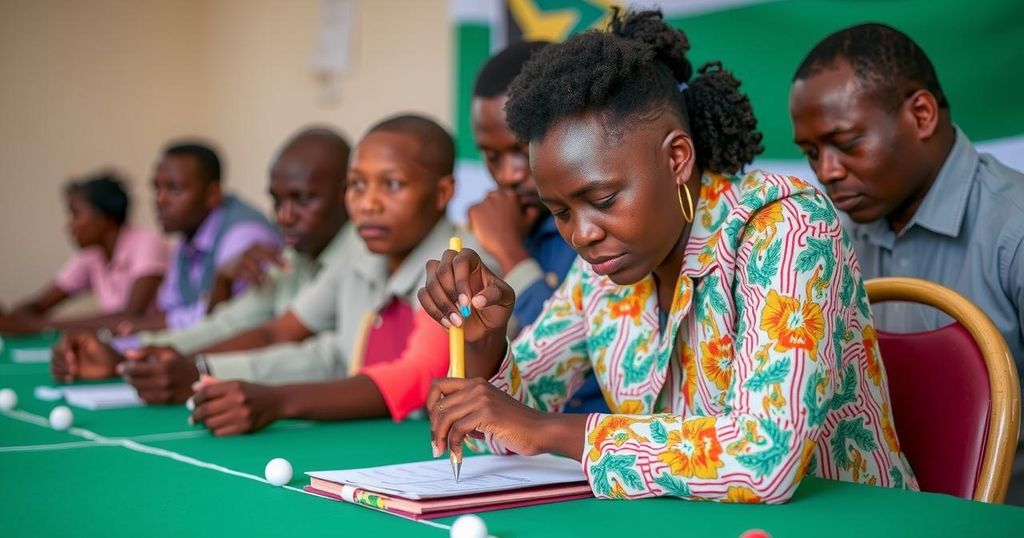South Sudan is set to hold general elections in December 2026, following delays attributed to the need for a census, a constitution, and party registration. The political will and financial resources are crucial for successful elections, as mismanaged voting could threaten national stability. Past challenges, including civil war and postponed election dates, cast doubt on the feasibility of the upcoming vote, raising concerns among citizens about the electoral process.
South Sudan is scheduled to conduct general elections in December 2026, which follows multiple delays since their initial planned date earlier this year. The postponement stems from various needs, including the completion of a census, the drafting of a permanent constitution, and the registration of political parties. This extension allows the current transitional government, led by President Salva Kiir, to maintain power while preparations are made for an elections framework.
Abendengo Akok, the head of South Sudan’s National Electoral Commission, emphasized the need for political commitment to facilitate successful elections, pointing to the 2018 peace agreement as a crucial precedent. According to Akok, with serious intent, two years could be sufficient to conduct the elections, yet he highlighted the necessity of financial resources to support this endeavor. Nicholas Haysom, the Special Representative of the Secretary-General for the United Nations Mission in South Sudan, cautioned that poorly managed elections could incite renewed violence and threaten the nation’s stability.
Haysom stated, “Properly prepared elections, which have also been preceded by proper trust-building exercises, can play a significant role in taking an exercise which can be very divisive and make it a nation-building exercise.” This underscores the belief that collective participation in voting could facilitate unity and a shared vision for the future.
Since gaining independence from Sudan in 2011, South Sudan has faced insurmountable challenges. Initially scheduled for 2015, the first elections were postponed due to civil conflict that erupted in 2013 between President Kiir and his former vice president, Riek Machar. Following a comprehensive peace agreement in 2018, the elections were once again deferred. Concerns linger among citizens, such as Wani Yusuf, who expressed doubt about the realization of the 2026 elections. Yusuf remarked, “When you look at the period that we spend postponing the election…then there is also high possibility that election might not take place within those two years’ time.”
Additional obstacles include budgetary constraints and the time required to conduct a census and create electoral guidelines. The electoral commission has not yet initiated these processes, which could take up to 17 months to complete, due to insufficient funding. This situation raises further questions regarding South Sudan’s electoral readiness.
South Sudan gained independence from Sudan in 2011 and faced immediate challenges, including civil conflict that hindered its election timetable. Elections originally set for 2015 were postponed due to a devastating civil war that escalated two years after independence. In 2018, a peace agreement was signed, leading to the establishment of a transitional government and a promise for elections that have since been indefinitely delayed, prompting concerns regarding readiness and stability in the lead-up to the new proposed date.
In summation, South Sudan is poised to hold general elections in December 2026 after a history of delays and instability. Political will, adequate funding, and proper electoral management are crucial to ensuring these elections occur and are conducted fairly. The potential for renewed violence remains a significant concern unless proper preparations and trust-building measures are effectively implemented in advance of the vote.
Original Source: www.voanews.com







